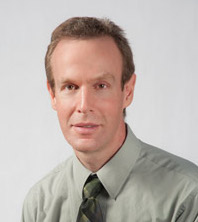Normal
0
false
false
false
EN-US
JA
X-NONE
I met Maura Johnston two months ago. (Her name and patient details have been altered to protect anonymity.) She was an intriguing person, but what was most interesting was it seemed she’d done everything “right” in her life, which I find unusual. She’d grown up in the Bay Area with a supportive family, attended college and holds a challenging and rewarding job in marketing for a winery. Now 42, she has a loving husband and two daughters, ages 6 and 8. Maura gets up early every morning to run four to five miles before heading to work. She had smoked “two cigarettes” in college, none since. She enjoyed a glass of wine a few times a week, never more. No one in her family was ever diagnosed with cancer.
A few weeks before her appointment, she noticed vague pains in her abdomen and thought it was “stomach flu.” When symptoms persisted, she saw her family physician. Later, a CT scan and biopsy confirmed she had colon cancer. Unfortunately, it had already spread to her lungs and liver. Though we’ve made progress in treatment of many cancer types, progress in colorectal cancer treatment has been slow. We can temporarily shrink the cancer, but Maura is almost certainly going to die from it in the next few years.
The first question many patients ask is: How do we treat this, and how soon can we start? Maura’s first question was more perplexing. “I’ve lived a perfectly healthy life. Why did I get cancer? Why me?”
Many of my patients have their own theories on this, and some make a lot of sense. A year ago, Maura’s sister started using methamphetamine and became homeless-a huge stress for Maura who constantly worried about her. Maura was fairly sure this recent stress brought on her cancer. Could it have?
It’s safe to say we don’t have all the answers, but several studies suggest that stress is unlikely to be a common cause of cancer.
One of the largest and best studies to determine whether stress contributes to breast cancer was published in 2009 (Surtees PG). More than 11,000 women in Europe who didn’t have cancer were surveyed about the degree of stress in their lives. The survey asked women detailed questions about stressful circumstances in childhood (separation from mother, hospital stays, physical abuse, parental drug/alcohol abuse). They were also questioned about adulthood stress (injuries or assaults, relationship issues such as divorce, work conflict, death of loved ones). They were questioned about how upsetting these events were, and whether they felt they’d recovered from these stresses. They then tracked all the women to see who developed breast cancer over the subsequent nine years. The study found no evidence that stress exposure or difficulty handling stress were related to the development of breast cancer. Other studies generally back up these conclusions.
If stress doesn’t cause cancer, maybe it’s mostly random chance. That may sound like a crazy theory, but it got a big boost by the publication of a high-profile study in Science, a prestigious science journal, among those who authored the study was Dr. Bert Vogelstein, one of the most well respected cancer researchers in the country. Dr. Bert Vogelstein. The authors found that the lifetime risk of cancers of many different types correlates with how often the self-renewing cells in the tissue divide. For example, since colon cells divide more often than heart cells do, colon cancers will arise more often than heart cancers. Random mutations arise in the DNA of dividing cells all the time, so the more cells divide, the greater the chance mutations will occur. Their conclusion is that “only a third of the variation in cancer risk among tissues is attributable to environmental factors or inherited predispositions. The majority is due to ‘bad luck’…”
If “bad luck” is responsible for most cancers, we might as well skip the regular exercise, the avoidance of smoking and heavy drinking, and start eating whatever looks good. Many magazines and newspapers picked up and broadcast these conclusions. But if you read the Science article carefully, you’ll find a logical flaw (which other scientists quickly noted). Vogelstein confuses correlation with cause, an error you should be on the lookout for in science studies. Sure, tissues with rapid turnover acquire cancer more often, but that doesn’t imply rapid turnover is the main cause of cancer.
Studies clearly show that environmental and lifestyle factors increase the risk of cancers, and we can’t ignore the evidence. In the United States, some examples include: lung cancer (90 percent caused by smoking); colorectal cancer (75 percent caused by diet, especially red meat, smoking, alcohol and obesity); melanoma (85 percent caused by sun exposure).
So how do I respond to Maura? Maura, you’ve done a great job living a healthy life. It’s not your fault you developed colorectal cancer. As far as we know, stress doesn’t cause this, so don’t blame yourself. Though we can identify risk factors for many people with cancer, lots of healthy people unfortunately get cancer anyway.




